On August 22, we organized a scientific seminar on “Teaching ‘recursive stability’ of MPC to engineering students“. The scientific seminar was led by Martin Mönnigmann, a professor at Ruhr-Universität Bochum, Germany. The scientific seminar was organized in the framework of the FrontSeat project as part of the seminar series on “Research Seminar on Smart Cybernetics”.
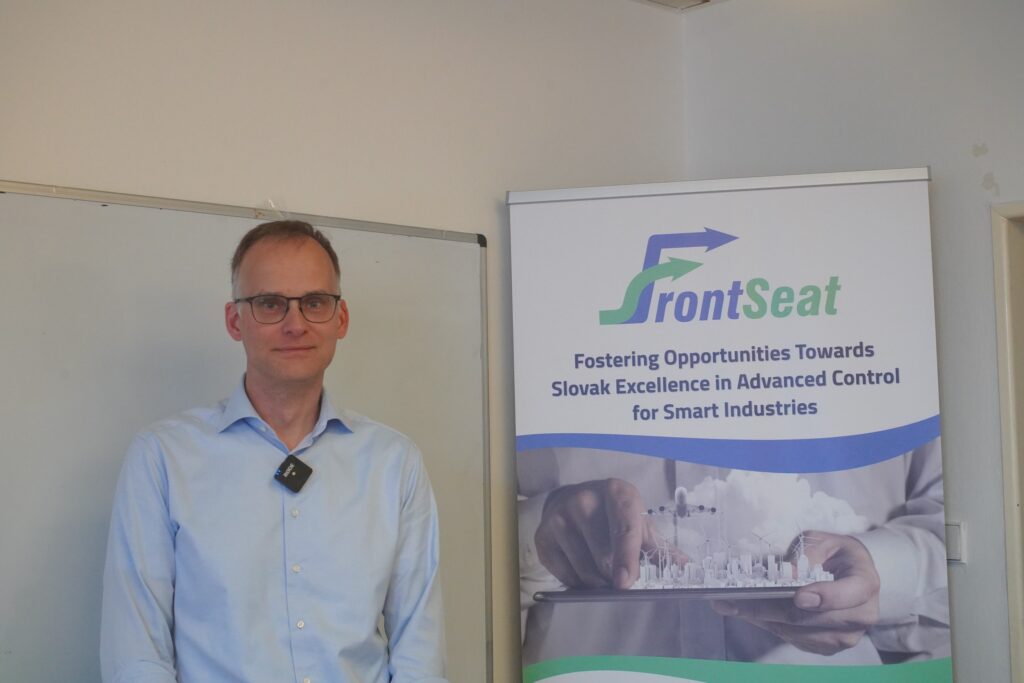
Abstract:
MPC is famous for its ability to handle constraints systematically. From a technical perspective, MPC inherits this feature from the powerful constrained optimization methods it is based on. Once students appreciate constrained optimization for being able to handle constraints, it is surprising to them that MPC may break down because of a sudden failure of this very same feature. Even experienced MPC users may still be startled by the abrupt transition from an apparently well-behaved closed-loop behavior to a very ungraceful failure: the underlying optimization problem first has a solution for the given system state, then continues to have solutions for some (possibly many) subsequent states under MPC-control, and – without any warning whatsoever – suddenly does not have any feasible solution anymore. It is natural for students to ask how this may happen if it is the very purpose of the constraint optimization to handle constraints, and after successfully enforcing these constraints for many time steps. Students often first suspect such a failure of MPC is due to a strong disturbance or plant-model mismatch. Unfortunately, however, MPC controllers may break down in the described way under ideal conditions, i.e., in the absence of disturbances and even in simulations with a perfect model.
An MPC controller is said to be “recursively feasible” if an input signal that respects all constraints can be guaranteed to exist for all times when such a signal exists for the initial state of the system. The presentation summarizes the teaching material used in a Master’s level lecture in the Mechanical Engineering Department of Ruhr-University Bochum. It aims at explaining recursive stability and its relation to the horizon of the MPC problem for linear MPC in a single lecture. The explanations aim to use an example that is as simple as possible. This approach is preferred to merely show with computational experiments that the underlying optimization algorithm may fail because it is difficult to distinguish a failure due to a fundamental problem from a numerical problem. The teaching material concludes with an outlook on well-established methods to ensure “recursive stability” by design for nominal linear MPC.
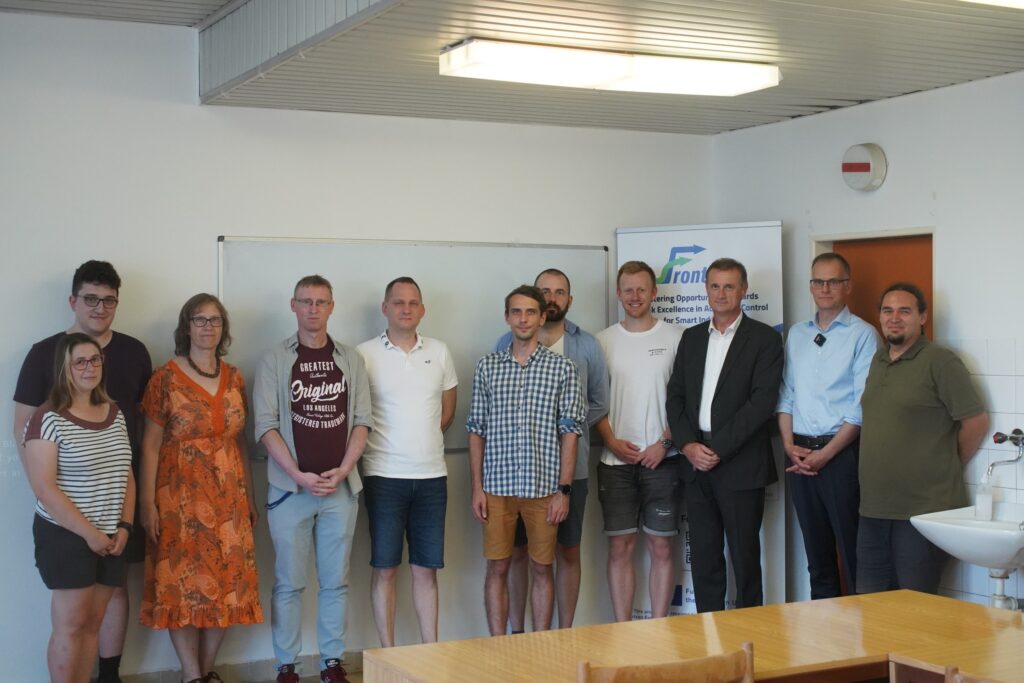
This project has received funding from the European Union’s Horizon under grant no. 101079342 (Fostering Opportunities Towards Slovak Excellence in Advanced Control for Smart Industries).
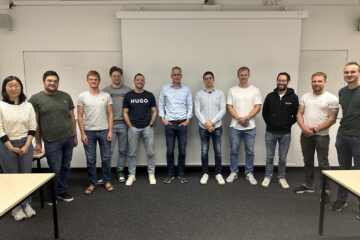
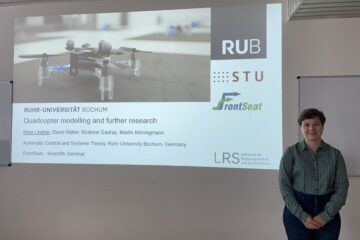
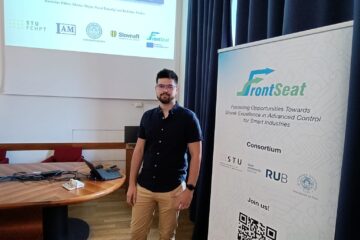


1 Comment
RUB Visited STU in Bratislava for an Audit - FrontSeat · September 1, 2023 at 3:10 pm
[…] It was the purpose of the visit to evaluate the current state of the research and education programs at the Department of Information Engineering and Process Control, FCHPT STU. The goal was to find potential for optimization in research and teaching that would ensure the university’s long-term success. The visit also encompassed an exchange of teaching materials for future joint courses on optimal and predictive control. Read more in:Teaching “recursive stability” of MPC to engineering students […]